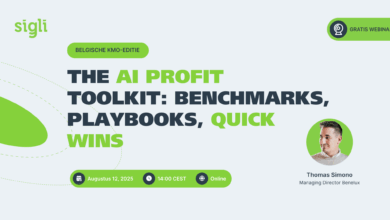
Greg Williams is one of the world’s most respected technology journalists and futurists. As the former Editor-in-Chief of WIRED UK, he has spent decades decoding the impact of emerging technologies on business, society, and security. His sharp insight into innovation, leadership, and future trends has made him one of the most in-demand technology speakers on the global circuit.
With a deep understanding of artificial intelligence, digital transformation, and cyber resilience, Greg regularly advises Fortune 100 companies and government bodies on how to navigate disruption and seize opportunities. Whether unpacking geopolitical shifts in tech or explaining the real-world implications of AI, he is also among the top AI speakers and cyber security speakers for corporate audiences.
In this exclusive conversation with The Champions Speakers Agency, Greg shares his perspective on the future of cyber threats, how to spot fleeting tech trends, and why optimism—grounded in human decision-making—is essential in the age of automation.
Q: With cyber threats becoming increasingly sophisticated, where should business leaders focus their attention to stay secure in an AI-driven threat landscape?
Greg Williams: So, I think my advice to organisations would be: is there a use case for this? Is there demand? Can we see how to use this, or is this something that’s in the dim and distant future?
What we’re seeing is cyber is becoming increasingly sophisticated. We’re seeing the use of new forms of artificial intelligence and other tools that really are way beyond what we’ve seen in the past. And that’s very, very, very hard for organisations to keep an eye on because it’s moving so quickly.
Fundamentally, though, it always comes back to your people. It always comes back to: will someone click on a link? Will someone give someone access to a building? So fundamentally, like all technology, this comes back to human beings. It’s not about the actual technology itself.
Q: In your experience analysing innovation trends, what signals suggest a technology is hype rather than a sustainable shift?
Greg Williams: So, look, I think the defining traits of a short-lived trend are pretty sort of straightforward in that you cannot find a use case. So, I remember a while ago, we were all told that we’d be living in the metaverse and we’d be trading tokens, and we’d have property in the metaverse. This hasn’t happened—unless you were under the age of 12 years old.
What has happened instead is we’re seeing the use of augmented reality goggles in areas like, you know, industry. But the way that we were told by, you know, various people in marketing teams that we all had to move our brands into the metaverse just didn’t happen.
So, I think my advice to organisations would be: is there a use case for this? Is there demand? Can we see how to use this, or is this something that’s in the dim and distant future that maybe we’ll revisit if it does look like it might become real?
Q: What core message do you aim to leave audiences with when speaking about the future of technology?
Greg Williams: First of all, I hope that people feel inspired and they feel excited about the future. I think it’s very, very easy to kind of give a doom and gloom technology presentation because there are many challenges. There are many ways in which technology is something that is challenging and very, very difficult for organisations to implement.
What I hope is that we can look to the future with real optimism because tech can solve many of the problems—whether we’re talking about healthcare, whether we’re talking about our organisational efficiency, or whether we’re talking about ways that we can secure ourselves better. Technology does have solutions if we think about it in the right way and implement it in the right way.





